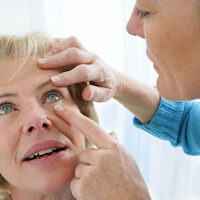8 Mistakes to Avoid When Using the Internet

The internet has become an integral part of our daily lives. We use it for shopping, communicating, paying bills, watching movies, and more. But while the internet offers numerous benefits, it has potential dangers, too, such as identity theft, phishing scams, and malware attacks. Cyber crimes have become more sophisticated, so you must be vigilant to stay protected online. Below are the common mistakes people make when using the internet and how to avoid them.
Falling for phishing scams
Cybersecurity threats are a significant issue for people using the internet, as they can result in identity theft, financial loss, and other serious consequences. Examples of cybersecurity threats include malware, hacking, ransomware, and phishing scams. Phishing scams trick people into revealing their personal information, such as their login credentials and credit card numbers. To carry out these scams, hackers usually pose as legitimate organizations and send emails, texts, or messages to individuals asking for sensitive details. Such fraud requests are challenging to spot as they appear genuine, so being cautious and skeptical of unsolicited messages is essential.
Two tips to avoid falling for phishing scams are to double-check the sender’s email address or phone number and avoid clicking on suspicious links or downloading attachments. Using anti-phishing software and two-factor authentication may provide an extra layer of security.
Using weak passwords
Using weak passwords is one of the most common mistakes when using the internet. Hackers or brute force attacks can easily guess a weak password, leaving your accounts and personal information vulnerable. To avoid any mishap, it’s important to set strong and unique passwords for every account using a combination of letters, numbers, and symbols. Installing a password manager to generate and store passwords securely is also a good idea.
Sharing sensitive information online
Sharing personal information, such as your full name, address, date of birth, Social Security number, or credit card PIN, can increase the risk of identity theft and fraud. Strangers can even use this sensitive information for online harassment and bullying, two serious issues in the digital world. The anonymity of the internet encourages some people to engage in such behaviors that cause others psychological and sometimes even physical harm. To avoid problems, be cautious about what you share online and only provide details to trusted sources. Also, use secure websites for online transactions and monitor your credit reports regularly for any signs of suspicious activity.
Not updating software and operating systems
Software and operating system updates often contain security patches and bug fixes that protect your device from cyber threats. Not installing these updates can leave your device vulnerable. It can also lead to technical issues, such as slow internet speeds, device malfunctions, and software glitches, which can be frustrating when using the internet for urgent work. This can, in turn, disrupt productivity, cause stress, and even result in financial losses. Checking for updates and installing them promptly will ensure you don’t face tech issues while surfing the web.
Not using antivirus software and firewalls
Antivirus software and firewalls help protect your device from malware and other cyber threats. Failing to use these tools can leave your system and personal information vulnerable to attacks when using the internet. So, use reputable antivirus software and enable firewalls for added security. There are many options on the market, so finding one shouldn’t be hard.
Trusting unknown or unverified sources
The internet is full of unreliable and fraudulent websites, and visiting them can put your device at risk for malware, viruses, and other cyber threats. So, only visit and download media from trusted sources and avoid clicking on suspicious links or ads. Also, use reliable websites for reading and research. The internet has become a breeding ground for disinformation and fake news, which can spread rapidly and have significant real-world consequences. Be critical of the sources of knowledge you encounter online and check their credibility before believing or sharing anything.
Oversharing on social media
Oversharing personal information can put you at risk for identity theft, fraud, or cyberstalking. So, be mindful of what you share online and avoid revealing sensitive details, such as your location or travel plans. Further, regularly review your device’s privacy settings and limit access to your personal data because a lack of privacy is another issue people face when using the internet. Hackers track personal information, such as browsing history, search queries, and social media activity, and use it for targeted advertising or sell it to third parties. People should become aware of their right to privacy and take steps to protect their data online.
Not using reliable internet plans
A reliable internet connection is essential for quick browsing and staying protected online. Thankfully, many service providers in our country offer 5G internet plans at competitive prices. A popular choice is T-Mobile’s 5G Home Internet plan starting at $50/month. It comes with a 15-day trial period and has no annual contracts. Straight Talk’s Home Internet plan is an alternative, starting at $45/month for unlimited data. Many providers keep introducing new 5G internet plans and offer deals to attract customers. Don’t forget to compare plans thoroughly and sign up with a reliable service provider to reduce the risk of a cyber attack.
Today, it has become almost impossible to function efficiently without the internet. However, you must be cautious online to enjoy the benefits without falling victim to potential dangers. By being aware of these mistakes and avoiding them, you can enjoy the many advantages of the internet while keeping yourself and your personal information safe and secure. Besides taking steps to prevent cyber threats, using the internet responsibly is essential. Sadly, many spend endless hours with their gadgets, which leads to social isolation and physical health problems.





